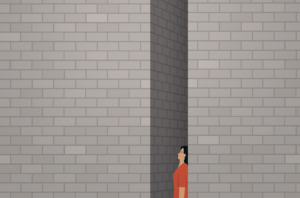From YES! Magazine: “To address the dramatic increase in mental and emotional distress in the U.S., we must move beyond a focus on the individual and think of well-being as a social issue. Both the World Health Organization and the United Nations have made statements in the past decade that mental health is a social indicator, requiring ‘social, as well as individual, solutions.’ Indeed, WHO Europe stated in 2009 that ‘[a] focus on social justice may provide an important corrective to what has been seen as a growing overemphasis on individual pathology.’ The UN’s independent adviser Dainius Pūras reported in 2017 that ‘mental health policies and services are in crisis—not a crisis of chemical imbalances, but of power imbalances,’ and that decision-making is controlled by ‘biomedical gatekeepers,’ whose outdated methods ‘perpetuate stigma and discrimination.’
Our economic system is a fundamental aspect of our social environment, and the side effects of neoliberal capitalism are contributing to mass malaise.
…
Clearly, many of those suffering mental and emotional distress are actually having a rational response to a sick society and an unjust economy. This revelation doesn’t reduce the suffering, but it completely changes the paradigm of mental health and how we choose to move forward to optimize human well-being. Instead of focusing only on piecemeal solutions for various forms of social ills, we must consider that the real and lasting solution is a new economy designed for all people, not only for the ruling corporate elite. This new economy must be based on principles and strategies that contribute to human well-being, such as family-friendly policies, meaningful and democratic work, and community wealth-building activities to minimize the widening income gap and reduce poverty.”















